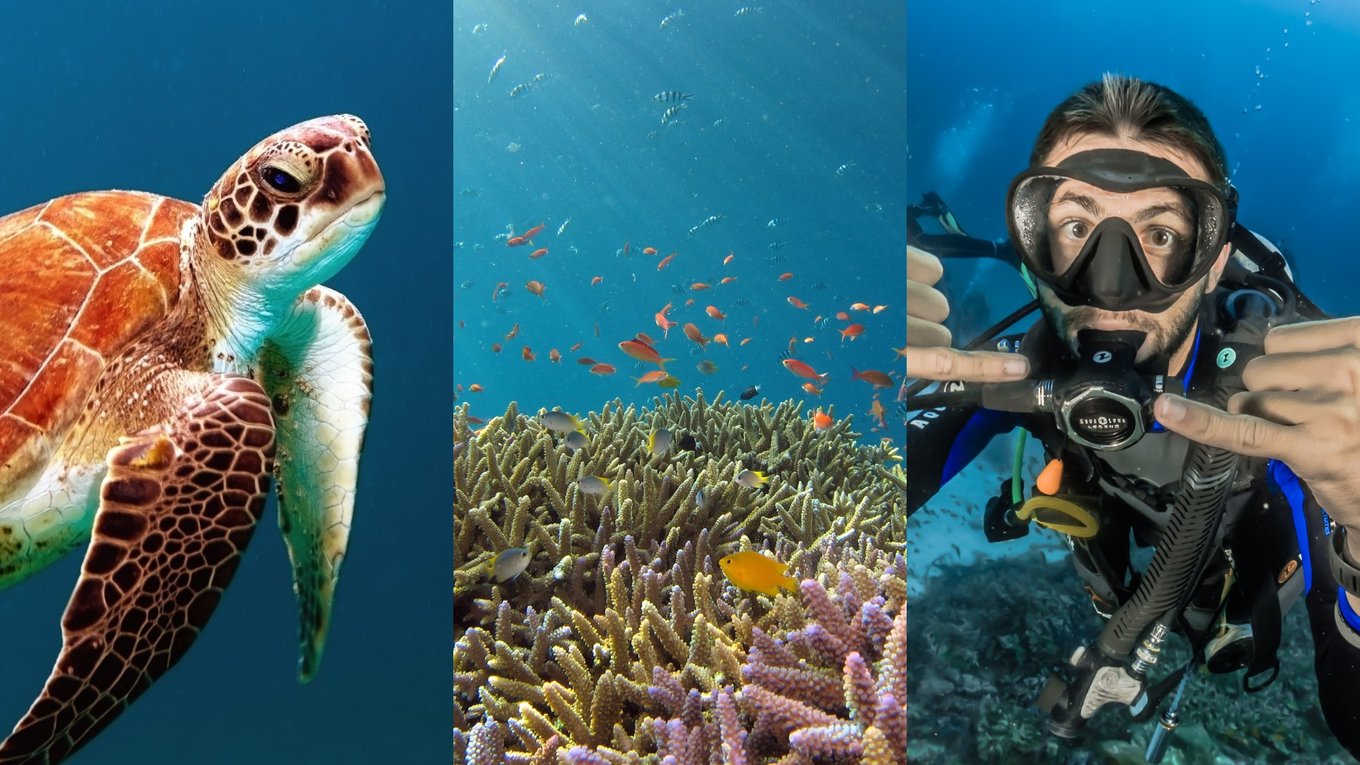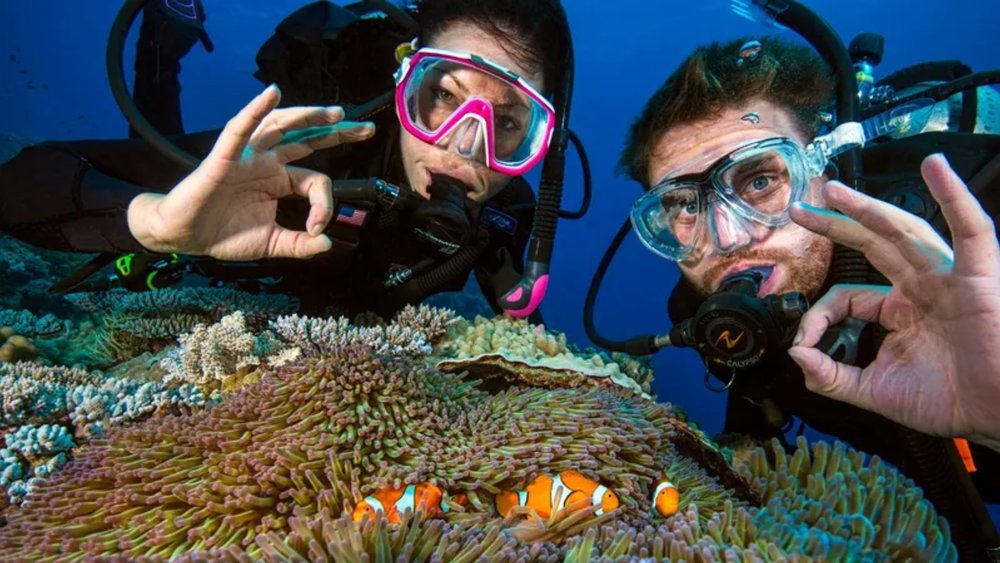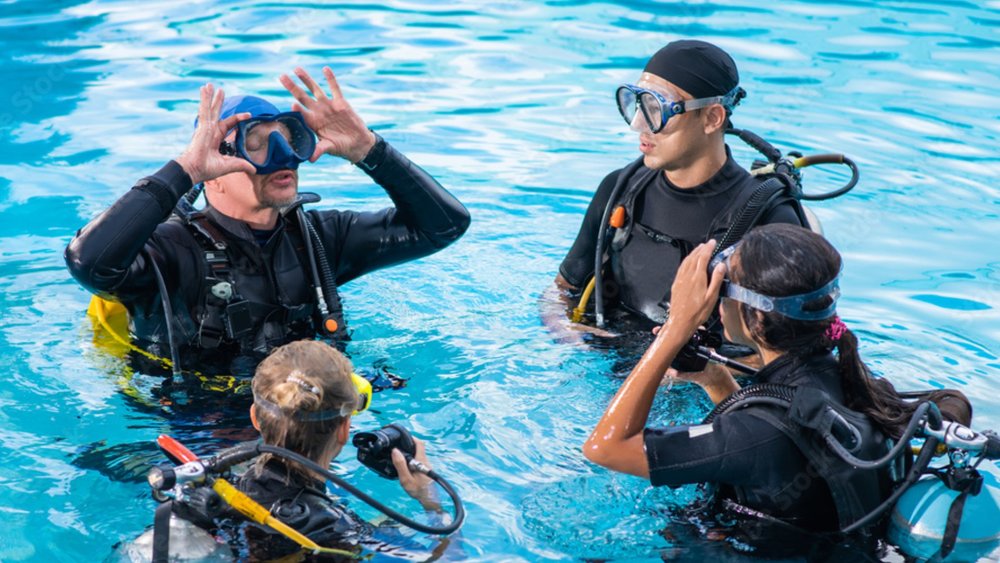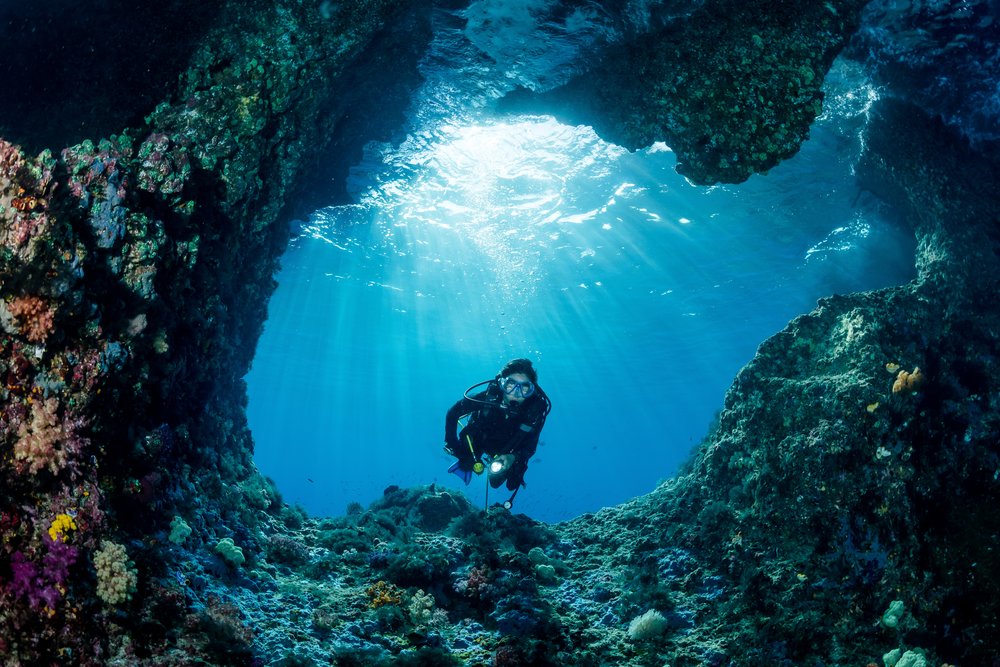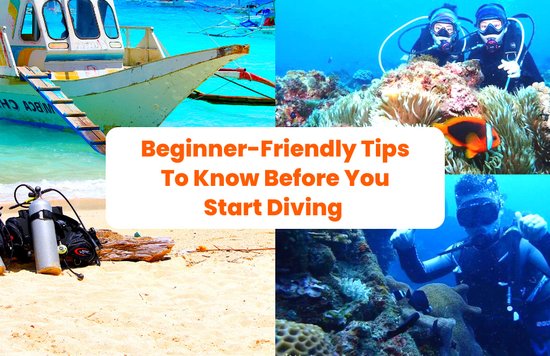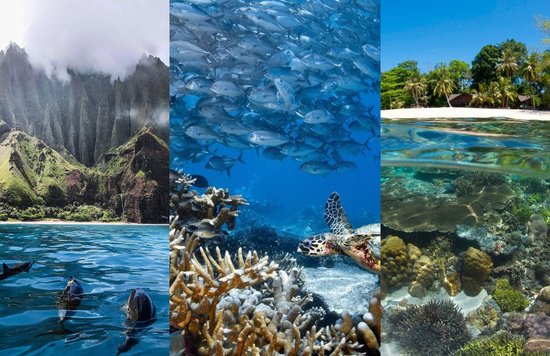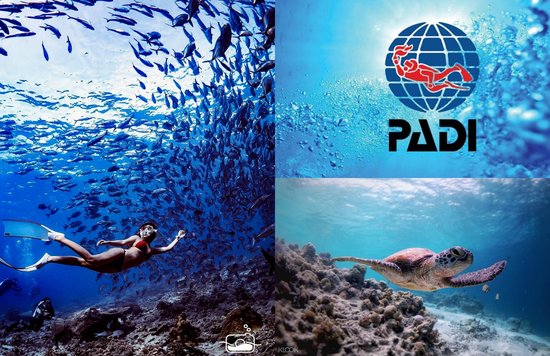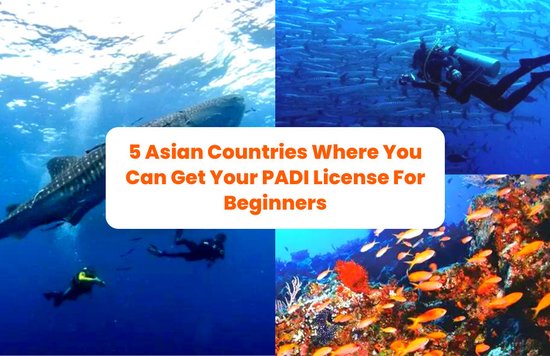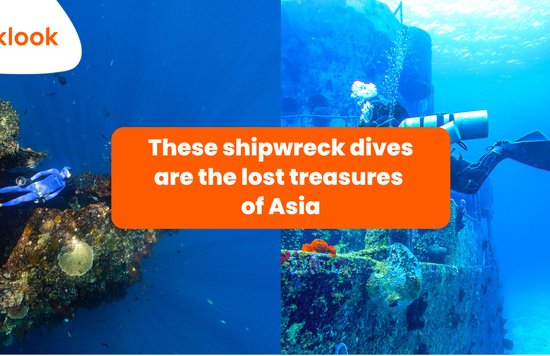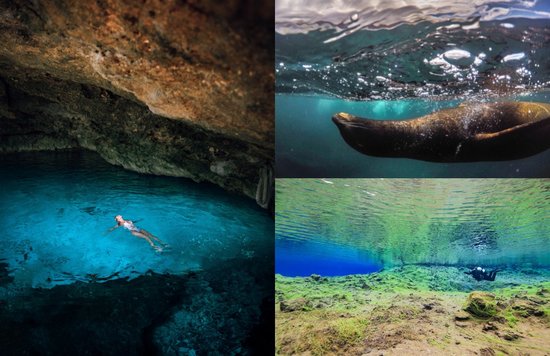Do you believe in Blue Mind Theory? It’s a belief that people go into a mildly meditative and peaceful state near or in water. Pair it with waves gently guiding you to unseen territories that sweep you off your feet (quite literally), and you’ve got scuba diving! What better way to immerse yourself in Mother Nature than being surrounded by unique marine life, vibrant coral reefs, and chancing upon shipwrecks-turned-homes by fishes?
If you’re interested in experiencing this for yourself, continue reading to know all there is to know about diving — from gear, certifications, best spots, and more! So suit up and get your scuba diving certification because we have sights to see under the sea.
You can discover, book, and experience the best things to do including attractions, activities, car rentals, SIM cards, and more on Klook. Sign up now! 🧡
Enjoy 5% off your first app booking when you use the promo code
<BETTERONAPP>. T&Cs apply.
The scuba diving gear you’ll need
To start off your scuba journey, make sure you have the following necessities to assist you on your dive:
- A regulator
- Buoyancy Control Device (BCD)
- Mask
- Snorkel
- Scuba diving suit
- Defog
- Fins and booties
- Surface Marker Buoy
- Dive Computer
- Compass
How to get a scuba diving certification
First, you’ll need the key to unlock the underwater world–a Professional Association of Diving Instructors (PADI) scuba diving certification. This is the most well-known and reputable there is! They offer several levels of scuba diving courses, from youth to professional. Earning your scuba diving certification doesn’t have to be complicated. Look for their most basic course, the Open Water Dive, priced at USD177 (with tax). It includes studying the basic terminologies of scuba diving, learning basic diving skills in a pool with your instructor, and accomplishing four dives in open water. You’ll be in the hands of experts who will take you from a beginner to a certified scuba diver within a few days for a lifetime of adventure. Once you fulfill the training course, give yourself a pat on the back as you now officially carry the most recognized scuba diving certification in the world!
Diving in deeper
Now that you’ve checked off your scuba diving certification from the list, all that’s left to do is to choose which type fits your goals and lifestyle best! Here are three different ways to embark on your journey into the deep blue sea:
Night Diving
Yup, that’s right! Scuba diving isn’t just a daytime activity. See the fascinating realm that comes to life with mystical nocturnal creatures like the Green Moray Eel, eye-catching red and purple-spotted Harlequin Shrimps, Porcupine Fish, and captivating corals that light up your dive. You’ll also be left tantalized by the bioluminescence from glowing planktons!
Drift Diving
Be ready for an unexpected adventure and let the current take you wherever it flows – perfect for those who thrive in spontaneity! Make sure you bring a surface marker buoy so your instructor can keep tabs on your location. There are two types of this scuba diving gear used here: a permanent surface marker buoy and a delayed surface marker buoy. The first one allows the dive boat to keep an eye on where you are your entire dive; meanwhile, the latter only surfaces when you send it up and are ready to stop.
Deep Diving
This is for those who are ready to take it to the next level. There are two levels of depth for this: beyond 18 and 30 meters, respectively. However, this is more technical and requires special training. But don’t worry. It’s definitely worth it! It allows you to discover treasures of the sea, like long-lost shipwrecks, caves, and marine life that inhabit the deep waters.
Dos and Don’ts
Before you hop on to scuba diving, let’s lay down the basics.
Dos
- Do go diving with a buddy, especially if it’s your first time.
- Prior to diving, establish hand signals with your buddy to communicate when submerged underwater.
- As the famous saying goes, “Do take only photos, and leave only bubbles.”
Don’ts
- Don’t forget to check in with your buddy to ensure that his/her suit is properly worn and all gear is complete and set up.
- Don’t be late. The earlier you get to your diving site, the better since you have ample time to prepare.
- Don’t distract yourself or anyone during the briefing so you can listen attentively to your instructor about what to do in emergency situations and if any areas are off-limits.
Phew, we’ve made it to the end! Diving is definitely something that you need to do at least once in your lifetime if you want to explore the underwater world. You’ll see just why upon your first dive; trust us! We hope reading this gave you that extra push to start your new hobby today.
More diving spots to explore!
Discover more diving experiences in other parts of the world like Indonesia! Bali has many diving spots perfect for divers of all levels like Padang Bai and Tulamben. If you're still not confident about your diving skills or just want to learn the basics of diving, we've got you covered:

